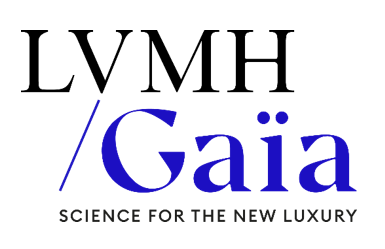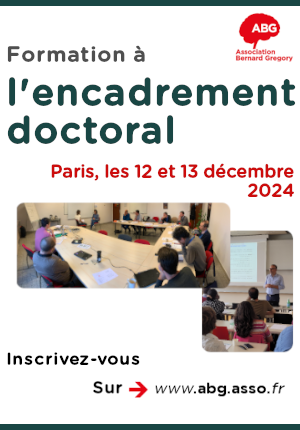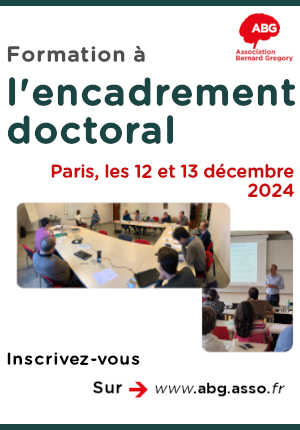Development of new radiotracers for PET imaging of mutated isocitrate dehydrogenases enzymes (mIDH) in solid tumors.
| ABG-125287 | Job | Confirmed |
| 2024-10-08 | Fixed-term 12 Month | > €45,000 and < €55,000 annual gross |
Employer
The UMR 1240 INSERM UCA is a multidisciplinary group composed of chemists, radiochemists, pharmacologists, biologists and clinicians engaged in cancer research programs. One of its main research areas is the development of innovative radiopharmaceuticals for molecular imaging or targeted radionuclide therapy. To achieve these goals, our lab has all the equipment and facilities for the syntheses/radiosyntheses to the pharmacological evaluation of radiotracers. Regarding the organic chemistry and radiochemistry domains, dedicated rooms and equipment commonly used to carry out multi-step chemical (radio)syntheses and to realize the structural determination of produced compounds are available.
Website :
Position and assignments
Isocitrate dehydrogenases (IDH) are enzymes that catalyse oxidative decarboxylation of isocitrate to α-ketoglutarate with subsequent reduction of NADP co-factor to NADPH. IDH are involved in several biological processes such as cellular metabolism, cellular defense against oxidative stress, oxidative respiration, and oxygen-sensing signal transduction. However, mutated IDH enzymes (mIDH) have been observed in several cancers including glioma, acute myeloid leukemia (AML), intrahepatic cholangiocarcinoma, and chondrosarcoma. Mutated IDHs confer neomorphic activity, converting α-ketoglutarate to the oncometabolite D-2-hydroxyglutarate, involved in tumorigenesis. High cellular levels of 2-HG can inhibit, for example, enzymes implicated in DNA-demethylation, histone-demethylation, and subsequently impair normal cellular differentiation and promote tumor development. Targeting mIDHs has emerged as a promising therapeutic strategy and three mIDH inhibitors (vorasidenib, enasidenib, olutasidenib have been approved by FDA and/or EMA in various protocols of therapy (glioma, AML, …). Accurate evaluation of mIDH status is essential for effective patient management. Currently, the presence of mIDH1 is determined either by invasive biopsy or indirectly by measuring the mIDH-derived 2-HG using magnetic resonance spectroscopy. Non-invasive imaging techniques for the detection of the mIDH1 protein using positron emission tomography (PET) or single-photon emission computed tomography (SPECT) could be of valuable help to provide information on the mutational status of patients’ tumours, to select admissible patients for anti-mIDH therapies and to determine efficacy of therapeutic inhibitors in order to facilitate precise medicine.
This international project will be performed in close collaboration with the neuroradiopharmacy laboratory of the HZDR (Research site Leipzig, Germany, Drs W. Deuther-Conrad and B. Wenzel).
Objectives: In this context, the aim of this post-doc position will be the development of an innovative radiotracer targeting mIDH, for PET and SPECT imaging of these mutated enzymes in solid tumors such as chondrosarcoma or glioma. The two main parts of this project will be: i) the synthesis of new radioiodinated and radiofluorinated mIDH ligands using medicinal chemistry, based on mIDH inhibitors that are currently under investigation and ii) to perform radiolabelling with fluorine-18 or iodine-125, after synthesis of corresponding precursor compounds.
Geographic mobility:
Starting date
Profile
The candidate must have achieved doctoral degree in organic chemistry and/or radiochemistry. Strong knowledge in organic chemistry is required. Experience in radiochemistry would be strongly desired. He/she must have experimental skills and an attraction for setting up and monitoring scientific experiments. Good oral and written communication skills in French and/or English is needed. On a personal level, the candidate must show scientific autonomy, thoroughness and initiative, and have good communication skills. The successful candidate is expected to be highly motivated and to actively contribute scientifically to the group.
Vous avez déjà un compte ?
Nouvel utilisateur ?
Get ABG’s monthly newsletters including news, job offers, grants & fellowships and a selection of relevant events…
Discover our members
 SUEZ
SUEZ  Généthon
Généthon  Aérocentre, Pôle d'excellence régional
Aérocentre, Pôle d'excellence régional  Groupe AFNOR - Association française de normalisation
Groupe AFNOR - Association française de normalisation  Tecknowmetrix
Tecknowmetrix  Ifremer
Ifremer  CESI
CESI  Laboratoire National de Métrologie et d'Essais - LNE
Laboratoire National de Métrologie et d'Essais - LNE  MabDesign
MabDesign  Institut de Radioprotection et de Sureté Nucléaire - IRSN - Siège
Institut de Radioprotection et de Sureté Nucléaire - IRSN - Siège  Institut Sup'biotech de Paris
Institut Sup'biotech de Paris  ONERA - The French Aerospace Lab
ONERA - The French Aerospace Lab  ADEME
ADEME  Nokia Bell Labs France
Nokia Bell Labs France  PhDOOC
PhDOOC  ANRT
ANRT  MabDesign
MabDesign  CASDEN
CASDEN  TotalEnergies
TotalEnergies
-
JobPermanentRef. ABG125662Association Bernard Gregory (ABG)Paris (3ème) - Ile-de-France - France

Responsable Recrutement, Relations Entreprises et Partenariats
Open to all scientific expertisesAny -
JobPermanentRef. ABG125911LVMH Gaïa- Ile-de-France - France

Ingénieur Recherche Nouvelles matières maroquinières (F/H)
Materials scienceJunior




